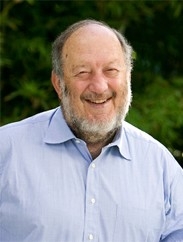Irv Weissman
Country:
USA
Company:
Stanford
Irving L. Weissman's research encompasses the phylogeny and developmental biology of the cells that make up the blood-forming and immune systems. His laboratory identified and isolated the blood-forming stem cell from mice, and has defined, by lineage analysis, the stages of development between the stem cells and mature progeny (granulocytes, macrophages, etc.). This required developing and cloning stromal cells of the hematolymphoid microenvironmentsfrom the bone marrow for myeloid and B cells, and from the thymus for T cells. While the adhesion molecules and factors from these stromal cells proved important as molecules (and the genes that encode them) for myeloid and B cells, the analysis of T cell development required in vivo studies of thymic development.
In addition, the Weissman laboratory has pioneered the study of the genes and proteins involved in cell adhesion events required for lymphocyte homing to lymphoid organs in vivo, either as a normal function or as events involved in malignant leukemic metastases.
The Weissman laboratory also has a small group at Hopkins Marine Station, where they have developed a model organism for laboratory and field study of allorecognitionthe invertebrate counterpart of transplantation immunity. Working with the protochordate Botryllus schlosseri (which has a chordate larval stage and an invertebrate adult form) they have identified a single major gene locus that governs rapid allorecognition, and 2-3 other loci involved in delayed allorecognition events. They are using this model to study the genes, proteins, and cells that govern protochordate allorecognition, and the effects of these genes on their population dynamics in the field.
